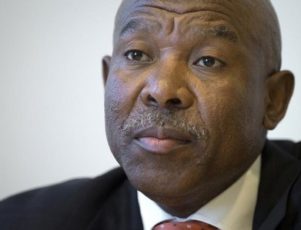Paul Ballen’s ice-cream startup is making waves with its unique flavors and fresh approach.
Ice-Cream is pretty big business across much of the world, but South Africa is not a name that most would connect with the frozen treat. Paul Ballen is a man intent on changing this, and on creating a brand of ice-cream that is known for its quality and innovative flavors.
Ballen’s company, the eponymous Paul’s Homemade Ice-Cream, has been creating a stir in his hometown Johannesburg with its bold varieties and focus on high quality ingredients.
As the Paul’s Homemade Ice-Cream range expands and grows in popularity, ice-cream lovers will be hoping it spreads outside of its home country.
It started with a gift
The beginning to Ballen’s company began only 6 years ago, when his mother bought him an ice-cream maker for his 21st birthday. Something that was initially just a bit of fun in his parents’ kitchen, turned into a passion and a small source of income. Bellen said, “I started playing with different flavors and textures. I shared it with my friends and…ran it as a side business throughout my university studies and began supplying delis and cafés.”

Paul’s ice cream flavors
This small project slowly grew, as Ballen used social media to show people his latest flavor creations. One machine in his parents’ kitchen became three machines in the garage, as Ballen began to take orders from friends and local people. At this stage the business had grown, but it was still a very small operation. However, Paul Ballen decided to team up with a University friend, Josh Amoils, and as business partners the duo decided to make Ballen’s passion a full time enterprise.
Amoils said, “I was excited about new ventures and new opportunities and we decided to give it a go in March 2014. We moved from the garage at Paul’s parents’ house to a workshop…we simultaneously had to get on the road and visit distributing outlets to try get our ice cream out there. Things just developed from there. We just constantly kept moving forward.”
Innovative flavors lead the way
A consistent factor with Paul’s Ice-Cream, whether from his early experiments in 2010 to his latest releases, is the focus on unusual flavors and fresh ingredients.
While the range includes classic ice-cream flavors, Ballen is constantly trying new combinations and ideas to ensure that the range excites consumers.
To get an idea of their range, consider that as well as offering the ubiquitous strawberry flavor, there is also a Strawberry & Pink Peppercorn. How many other brands of ice-cream offer flavors such as, White Russian, Oatmeal & Raison and Spiced Pumpkin & Marshmallow?

Paul’s Homemade Ice-Cream
While many of these flavors remain as permanent fixtures in their range, what really differentiates Paul’s Homemade Ice-Cream is that, as an artisanal product it can constantly offer limited edition flavors to keep interest high.
Ballen says, “We create really innovative flavors. Each month we run a campaign where we create a buzz around a topic or theme and then develop an ice cream flavor based on the theme, which is then available for that month.
These flavors are also highly focused on fresh ingredients with no artificial flavorings, and no automated machinery involved in creating each batch. Amoils explains that, “We only use natural ingredients, no preservatives, no additives. We don’t compromise on the quality of the ingredients, they are as good as you can get. We feel our stuff is made with love.”
The future of Paul’s Homemade Ice-Cream
Several cafes and restaurants around Johannesburg now stock Paul’s Homemade Ice-Cream, and the company has had international media interest. Despite growing interest, the company’s ice-creams remain a true craft product, as opposed to a mass-produced product that simply uses the fashionable label of “craft” for marketing.
Bullen and Amoils currently employ a workforce of 20 people, and like any successful business it is bound to grow, but neither of the two entrepreneurs wishes to alter the ethos of what has made the company so popular with its customers. Amoils explained, “We would rather maintain our current process of training up craftsmen, as opposed to investing millions in machinery to scale up production.”
While it is an admirable approach, it means that it could be a while before dessert lovers outside of South Africa get to enjoy White Rabbit or Apple Pie flavor ice-cream.
Read more












